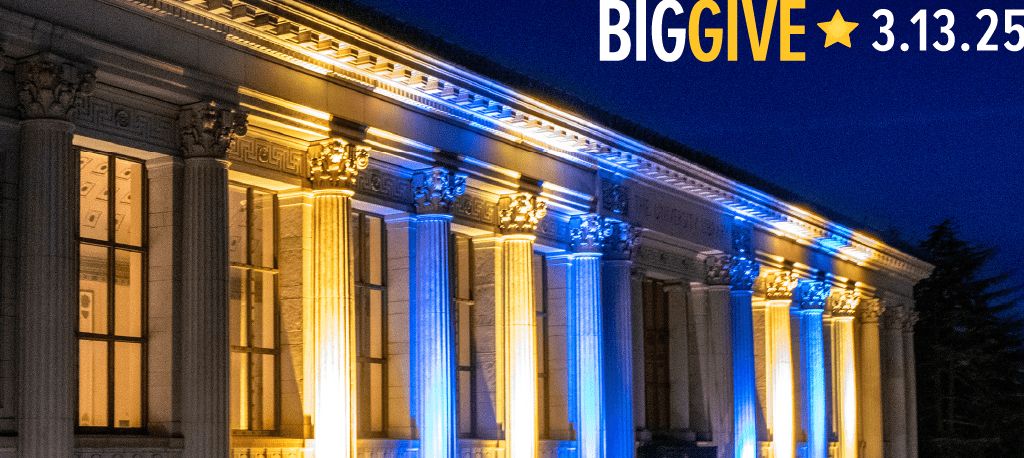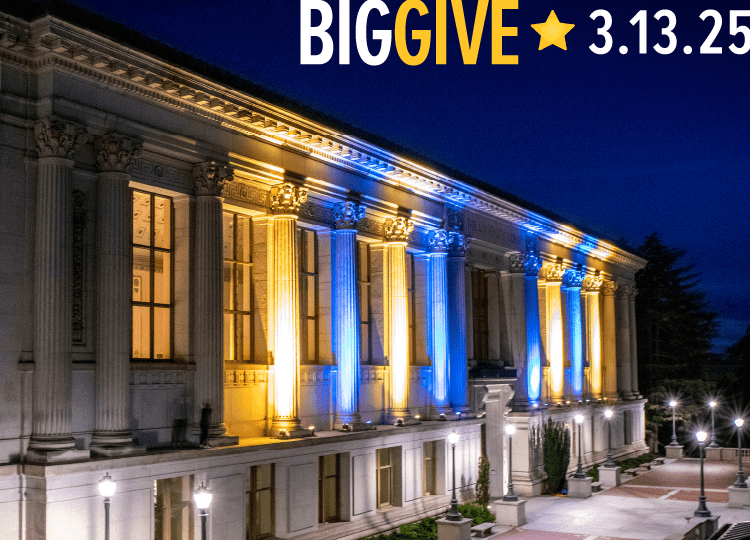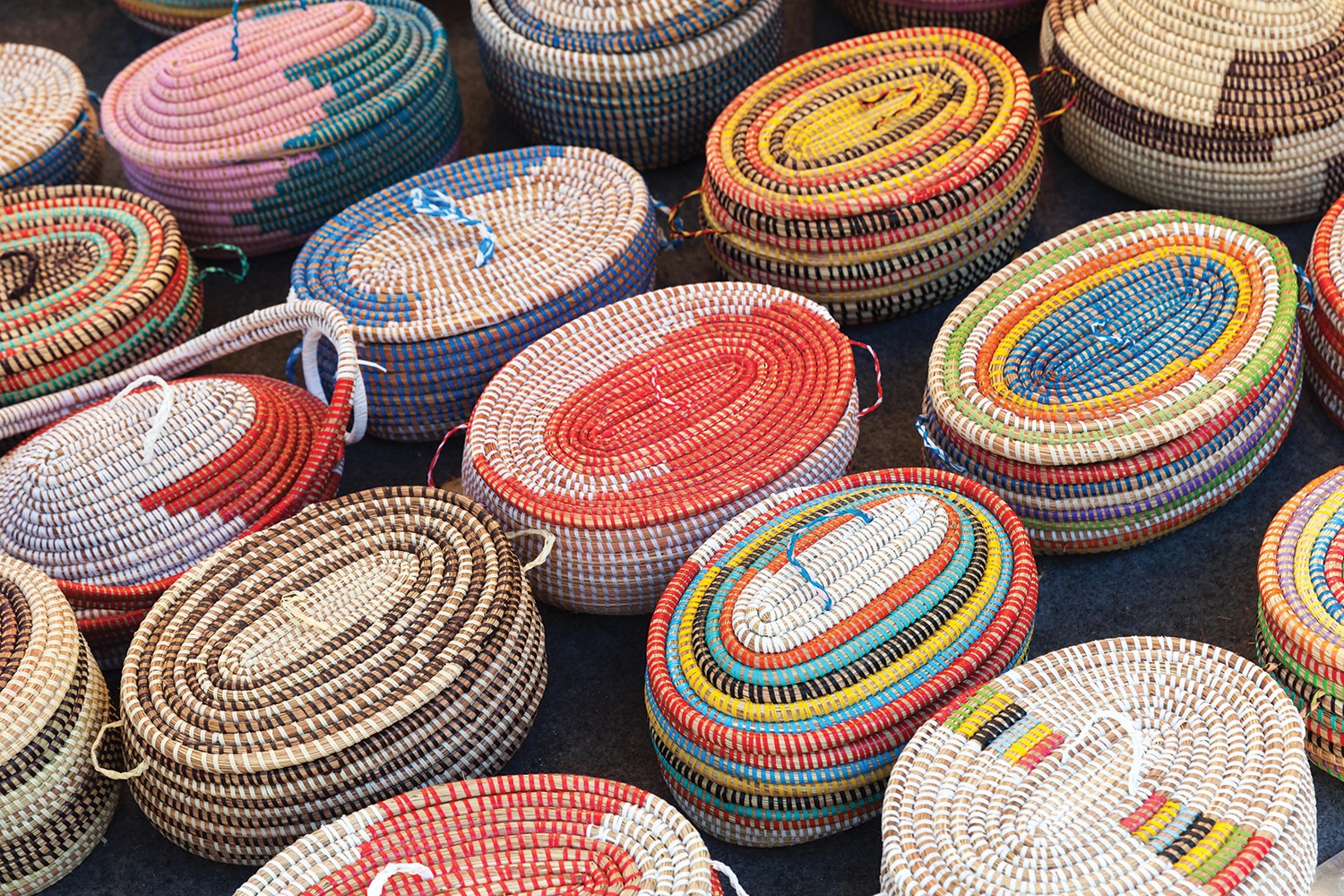
The Edge Episode 22: The Edge Presents “Climate, Hope and Science” From the Science of Happiness
Subscribe to The Edge on Apple Podcasts, Spotify, and YouTube.
Show Notes
We’re back with something a little different this month. In the wake of this year’s historic floods, wildfires, and hurricanes, we asked ourselves: What would it look like to take a more optimistic attitude towards slowing climate change? In that spirit, we’re sharing an episode of The Science of Happiness, a podcast co-produced by UC Berkeley’s Greater Good Science Center and PRX. The first in a miniseries the center is airing called “Climate, Hope and Science,” this episode features an interview with author Rebecca Solnit in which she explores how embracing uncertainty enables people to move beyond climate anxiety and despair to hope and action.
Further reading and listening:
- The Science of Happiness presents: “Climate, Hope & Science”
This episode was originally published by the The Science of Happiness podcast, a co-production of the Greater Good Science Center and PRX. Additional production by Leah Worthington and Coby McDonald.
Art by Michiko Toki and original music by Mogli Maureal.
Transcript:
LEAH: Aaaaaand we’re back! After a brief-ish and much-needed hiatus, your favorite podcast is returning with all new stories and questions and discoveries and, of course, controversies.
You might notice that things are a little different around here, most obviously that I’m the only one talking. That’s right—our beloved co-host, Laura Smith, has tragically left us. Some say she was eaten by a bear, others say she fled to Mexico after doing something illegal involving CRISPR. We may never know the truth… some stories are better left untold.
Anyway, in addition to bringing in new hosts, we’re also going to be mixing up the format a little to keep the stories flowing and your podcast feed full. More on that to come, so stay tuned!
For today, we’ve got a very special guest episode to share, which is the first of a new mini-series produced by our friends over at the Greater Good Science Center. The series, called “Climate, Hope and Science” is all about exploring one big question: In the face of environmental disaster, how do we find and maintain hope?
I know… in the wake of this past year’s deluge of bad weather, that might sound like a tall order.
Last December, parts of the Pacific Northwest were hit with ice storms that left travelers stranded days before Christmas. At the same time, the east coast recorded an unseasonably warm winter just months after eastern Kentucky suffered devastating heat waves coupled with catastrophic flooding.
Meanwhile, we Californians have been feeling a bit of our own climate whiplash. After years of short showers, infrequent car washes, planting drought-friendly gardens, we suddenly found ourselves absolutely DRENCHED in rainfall. I’ve never thought so much about potholes and storm drains and sandbags as I did in the last couple of months.
So back to that question… Is there room for hope? Well, suspend your climate doom for a minute or two because we have it on good authority that, yes, there is.
Which brings us to today’s episode—a fascinating conversation between psychologist Dacher Keltner and writer Rebecca Solnit, who makes a compelling case for staying optimistic about the future of our planet. We’ll also hear from climate scientist Patrick Gonzalez about the scientific argument for climate hope and our ability to enact meaningful change.
[MUSIC IN]
LEAH: This is The Edge, a podcast produced by California magazine and the Cal Alumni Association. I’m your host, Leah Worthington
Today’s episode was originally aired on The Science of Happiness, a podcast produced by the folks over at UC Berkeley’s Greater Good Science Center. We’re only featuring the first episode, but you can find more of their work—including the rest of the climate hope mini-series—in our show notes.
And we’ll be back with more of our own stories very soon!
[MUSIC OUT]
MAN: Hope is the thing that keeps you going when things get tough.
CHARLOTTE VONOYEN WIVTLEIT: Hope involves anticipating a good future that we think is possible and we really want to be true, and that isn’t 100% within our control.
WOMAN: It’s good for our mental health, it’s good for our general attitude.
Diana Gameros: I have to be honest I do feel hopeless sometimes because I see the effects of climate change. I mean, I live in California and I see it.
TOMÀS MÓRIN: Sometimes you wake up and you feel hopeful and sometimes you don’t. And just because you don’t on a certain day doesn’t mean you can’t get there. But I think those are things that have to be taught. You know, we’re just not, we’re not just born knowing how.
WOMAN: Otherwise, how would we make progress? How would we make advancements if we didn’t have this hope to give our lives purpose and meaning?
PATRICK GONZALEZ: Progress and hope create a self-reinforcing feedback for positive change.
YURIA CELIDWEN: There is no such thing also about my hope or yours, but rather what we are sharing.
GONZALEZ: Hope is the heart of all movements for meaningful change.
MAN: It’s like asking a whale if it needs water. I mean, yeah, of course we need hope.
DACHER KELTNER: I’m Dacher Keltner. Welcome to The Science of Happiness. On every episode of our show we talk about things we can do to improve our own well-being and our relationships with others. And the science behind why practices like gratitude journaling, mindful breathing or going out in nature are so effective.
Now, we’re expanding the science of happiness to our broader community – our ecosystem – and exploring how our happiness and the health of the environment are fundamentally intertwined.
Today we’re launching a special series on The Science of Happiness called Climate, Hope, and Science where we find the scientific links between our climate crisis, feeling hopeful, and taking action to protect the earth.
In this first episode, I’m joined by one of my heroes in the world of the written word and climate and social justice. Author, Rebecca Solnit.
And we’ll also hear from another hero of mine, Patrick Gonzalez, a climate scientist who really has made the case in several IPCC reports that both individual actions and the things we do collectively matter.
GONZALEZ: Meaningful and proven climate change solutions are all around us. It’s the real progress we’ve made in cutting carbon pollution that provides hope. That hope sustains our will to advance progress.
KELTNER: More Climate, Hope, and Science, after this break.
Welcome back to The Science of Happiness, I’m Dacher Keltner.
For the next few weeks we’re going to explore the intersection of environmental well-being and our own health and happiness. It’s part of our new series I’m really excited about: Climate, Hope and Science.
This series is really important to me personally because I’ve always found health and well being in solace in being outdoors in nature. And for 25 years I’ve really studied the interactions between nature and well-being and what we’ve learned is there’s almost nothing better for our minds and bodies than getting outdoors and relating to nature. A new science is really starting to show that when we cultivate states like hope and awe and beauty, it actually animates actions that are good for our natural environments. Right, eating less red meat or burning fewer fossil fuels.
And I’ve learned about different traditions. For example Dr. Yuria Celidwen, an indigenous scientist who has really reminded us in her scholarship how individual well-being and planetary well-being are one in the same. We really don’t flourish as individuals if our earth is not flourishing.
Today I’m joined by Rebecca Solnit, who is one of today’s most prolific and inspiring writers on art, culture, politics, and climate action.
Rebecca’s newest book is one she co-edited with the climate activist, Thelma Lutunatabua. It’s called Not Too Late, Changing the Climate Story from Despair to Possibility.
Rebecca joins us to talk about ways we can find climate hope. And how hope can fuel action. Rebecca, thanks for being here.
REBECCA SOLNIT: You’re welcome.
KELTNER: You know Rebecca, some surveys show that around half of adults feel some significant worry about climate change, and that this worry is both more common and severe for younger people. What was it in your own life, you know, in thinking about climate crises that got you to hope?
SOLNIT: I started thinking about hope before I started thinking seriously about the climate. The US attack on Iraq started in March of 2003. I ran into an intensified version of what I had often seen among progressive and left people. Which is the kind of tailspin of despair. They said something true. We did not stop the war, but they went from that to something that wasn’t true. We didn’t achieve anything, just even less true. We have no power, we’ve never done anything, and you could see them kind of digging a hole and jumping in it. And I’d been really galvanized by a lot of things I was seeing around me.
I saw how much ideas and culture can change the world. How much this work we’re often told is trivial and insignificant. Creative work, scholarly work, intellectual work, analytical work kind of seeps into the culture and shapes the politics that shape the world we live in.
We are not in paradise. We have not achieved the world of perfect equality and safety and justice, but we are in a radically different world. if you take the long view. So all those things we’re feeding my sense of hope, and I just wanted to go after that despair.
I wrote recently where I said, “A lot of hopelessness, I think, comes from amnesia. The past helps us understand the future. And I just kind of have a long view.”
Here’s my favorite thing. So, probably most of the listeners know about Standing Rock. In 2016, a few native women, Lakota women from the Standing Rock reservation took a stand against the Dakota Access Pipeline. It becomes the biggest gathering of native people in the Americas maybe ever. It becomes a huge part of the climate movement. So all that’s happening, it’s absolutely beautiful and amazing.
But I’m gonna tell you about one person. This waitress in New York gets in a station Wagon with her friends and they all go out to Standing Rock that fall of 2016. And what she sees there, she finds so powerful. So moving, it so gives her a sense of hope and possibility. She goes back to New York and she decides ultimately to run for Congress. But most people just say, oh, pretty waitress, nobody’s heard of her. Everyone’s heard of her now, her name is Alexandria Ocasio-Cortez. She becomes the most visible person in Congress. The voice of the Green New Deal.
The Green New Deal does not pass, but it’s such a radical vision of what climate action could look like. It changes the conversation. And so Biden’s Climate platform essentially starts to look a hell of a lot like the Green New Deal. Which is huge.
One of the beautiful things AOC says is that “Hope isn’t something you have, it’s something you make.”
KELTNER: I’m curious, Rebecca, you know, in protecting this animating force that you call hope, and we, we know scientifically, you know, God, you give people a little bit of hope. They do better when they’re facing cancer, Dante Dixon – really cool young scientist has found that in under-resourced schools, kids who have hope study harder. It’s just this magical force. I want to ask you about this really influential Guardian article where you write about 10 ways not to lose hope in facing these climate crises. This one that really struck me. Don’t neglect beauty or awe or wonder of nature.
And one of the things that I really struggle with personally is, with the climate crisis top of mind, and I wander through beautiful Berkeley, you know, and you look at the plants and the old redwoods and, and I, I lose hope. You know, I feel like, “Ah, the things that I’m doing and that are happening, this all is gone.” You know, and I’m curious what that means to you: “don’t neglect beauty or awe to keep hope in the climate crisis.”
SOLNIT: I feel like beauty can be many things. It can be the music you love.
It can be the natural places you love. It can be going dancing, it can be playing with babies, um, watching birds. You know what’s beautiful for people varies. And beauty’s really different things for different people. And I love that you talk about moral beauty. Because I think sometimes beauty is seeing people do good things. Seeing people stand on principles, seeing integrity in practice. So it doesn’t have to be hiking in the woods. I also feel, listening to you, maybe I’m weird because I still find a lot of solace in the natural world. And I spend a lot of time in it. And I know no matter what happens over the next hundred years, there will be sunrises and moon rises. The Milky Way will be the Milky Way – that the non-organic world will do its thing. There will be tides and waves and not everything is gonna make it. But a lot will, there will be birds, there will be flowers, there will be trees, there will be forests. And that’s–
KELTNER: And evolution will move forward.
SOLNIT: Yeah. And one of the reasons I think scientists are not so despondent is because they know that the earth has been endlessly creating new forms of life and new patterns, but also old ones have fallen again and again. The world we’ve inherited is so beautiful. There will be beauty and so you can enjoy beauty now, in a way that doesn’t mean you’re betraying the future because you’re not.
KELTNER: What do you think are some of the things that people can do today in this moment of tapping into that sense of personal power?
SOLNIT: One of the best answers I ever saw came while I was sitting on the floor of a sort of radical space in Paris while the Paris Climate Treaty was being negotiated or sitting there with a very burnt out Bill McKibben, because he worked so hard for so long for climate action. And somebody said, “What’s the best thing I can do as an individual?” And he gives his answer a lot. He said, “Stop being an individual.”
Individually, we mostly don’t have a lot of power. Together, the ants can move the elephant.
And so, find an organization, find a movement, find a cause, find what your gifts are. Find the people who do care because emotion is contagious. You know, people who are indifferent will spread their indifference. People who are despondent spread their despair. People who are hopeful or just committed, spread their hope and commitment.
I think we’re beginning to recognize that individualism is lonely and we have a deep crisis of loneliness that Silicon Valley, pandemics, et cetera, have made worse. Something that was striking in putting together Not Too Late, the book, was how often the solution was community, being a part of a community, finding a community, supporting community, recognizing community. I think that people deeply want to be part of something larger.
Capitalism wants us to be consumers, not citizens. A citizen is part of something bigger. A citizen is a participant in public life. So I feel like we have the pieces that, you know, we’re not starting from scratch, but we need to enlarge this capacity to value these intangible things that are our deepest needs and hopes and desires. So that instead of wanting stuff and God knows I like a pretty shirt,, you know, And I know myself.
But just to focus more on meeting our real needs–Integrity, connectedness. Definitely finding those moments of awe and joy and beauty and connection.
KELTNER: You’ve always done a good job of this, of like, identifying historical and social movements and their power. And you know pay attention to the movements that are already happening. And I’m curious where you find hope, in today’s world?
What inspires you?
SOLNIT: So many things do. And in the deep past as well as the recent past. And you look at the 80 years it took women to get the vote. And then, you know, the voting rights struggle that had to pick up from that because people of color, particularly black people in the South, still didn’t have voting rights after the 19th Amendment. I look at the anti-slavery movement.
The other thing is we have had an energy revolution that is absolutely staggering to contemplate. We have had the biggest energy revolution in the history of the planet and humankind. We can get all our energy from sun and wind. We can stop burning things to produce energy, which is what we’ve done since the first steam engines. We can leave the age of fossil fuel behind. That is so exciting.
KELTNER: It is.
SOLNIT: So I look at these movements. I see how things that started so small. that looked so tiny compared to what they’re taking on build and grow. And that’s, you know, that’s what, that’s what keeps me going.
I also find it in good people around me. Good ideas, good work being done. In that, long view of knowing how much the world has changed for the better in a lot of justice and perceptual ways over my lifetime.
A lot of it has been finding my people, finding good people, finding people who kind of live out moral beauty. Finding activists, finding examples, you know, who I’ll never meet because they died a hundred years ago or who are on the other side of the world, but knowing they’re out there. And so really focusing on that as well.
But above all, what hope is about for me is uncertainty.
I really wanted to just come to terms with the radical uncertainty and there’s something in a lot of us that hates uncertainty and we’ll fill that void, which for me is an open space of possibility – With false certainty, with, “I know what’s gonna happen. I know what’s possible. I see the future.” Whereas uncertainty, we don’t know, but it’s worth trying.
Our history is full of extraordinary surprises. The fall of the Berlin Wall. You know what happened with the Black Lives Matter orchestrated response to the murder of George Floyd. You know, marriage equality in 2015. Things people really never thought were going to happen, and they happen suddenly.
You don’t always know what the influences are, the people who are gonna change the world.
And I find certainty such a form of ignorance really. And of not really seeing what’s out there, which is I think a mysteriousness, a kind of beauty in mystery that is itself kind of exhilarating. We don’t know what’s gonna happen, so let’s go do this thing.
KELTNER: Rebecca Solnit, it’s just a moment of reverence for me to have you on the show. And so thank you so much for being on our show and all the work you do in the trenches for the greater good.
SOLNIT: I think those are trenches for planting flowers, actually. But maybe they’re battle trenches or maybe they’re not different. And thank you so much.
KELTNER: Hi, this is Dacher. You know, these days, so many of us feel profound anxiety about climate change. And I know for me, reframing hope, has been transformative. When I fall into despair about climate crises I really take heart in people like Rebecca Solnit who talks about the power of climate hope. Or Patrick Gonzalez who we’ll hear from next about how our individual actions really matter in responding to climate crises.
If you know someone who struggles with hopelessness when it comes to climate change, or who you think just wants to learn more about ways we can help our environment, please share our show with them. Thank you.
Up next:
GONZALEZ: We’re powering the future with solar, wind, energy efficiency, public transit. These data provide me with optimism, a science-based optimism, and this offers hope for the future.
KELTNER: We hear from climate scientist Patrick Gonzalez about the many things we have to feel hopeful about.
Welcome back to the Science of Happiness. I’m Dacher Kelnter and we’re talking about Climate, Hope, & Science—and how they intersect. We’ve been making the case for climate hope with one of my intellectual heroes, author and climate activist Rebecca Solnit.
Now we’re going to hear more about the case for hope from a climate scientist.
GONZALEZ: It’s good to start with the background and what we’ve accomplished already. That can give us hope. Hope is the heart of all movements for meaningful change.
Hello, I’m Patrick Gonzalez. I’m a climate change scientist and forest ecologist at the University of California, Berkeley.
KELTNER: Patrick’s lead author on four reports by the intergovernmental panel on climate change, a panel that was awarded a portion of the Nobel Peace Prize. His work has led to massive public policy changes from regenerating native trees in West Africa to protecting forests in California.
When it comes to slowing climate change, there is a lot of progress to consider.
GONZALEZ: In the United States, renewable energy exceeded coal in 2019 for the first time since the 1800s. The U.S cut carbon pollution 13%. We did this by becoming more efficient, cutting carbon pollution per person.
KELTNER: Another example – from 2000 to 2021, the world has quadrupled renewable energy capacity globally, adding solar, wind, and other renewable energy sources equivalent to 6,500 coal powered plants.
GONZALEZ: Life cycle costs for solar and wind energy are now lower than coal, gas, and nuclear. These data provide me with optimism, a science-based optimism, and this progress offers hope for the future.
Meaningful and proven climate change solutions are all around us. Walking or biking instead of driving. Adopting a plant rich meat-free diet. And like each of us, I control my own actions. So I aim to live as sustainably as I can. And keep my carbon pollution as low as I can to help reduce climate change and protect people and nature.
It’s the real progress we’ve made in cutting carbon pollution that provides hope. That hope sustains our will to advance progress. In this way, progress and hope create a self-reinforcing feedback for positive change.
KELTNER: Part of the science of happiness is bringing happiness to other life forms – including our planet. There’s a lot to be hopeful for, and we can also do our part to inspire hope and action in others. For me it’s really about learning from other people like Patrick Gonzalez and Rebecca Solnit and many of the young people who are innovating in this space. It’s about having conversations like this podcast, about things we can do and the changes that it brings about.
For me personally in terms of my actions it’s about walking more, and finding the kinds of awe and wonder right around us. Where we don’t have to burn fossil fuels to feel that sense of wonder about the world. And changing diet – eating less red meat.
On our next episode of the science of happiness we continue our series: Climate, Hope and Science. We’ll hear what the literature has to say about the idea that the past can motivate hope for the future.
WIVTLEIT: It can kind of keep us going. Like, what I do matters. We have something to draw on, because we’ve seen evidence of good things.
KELTNER: We’d love for you to share this episode with someone you care about, someone you think might benefit from it, like I hope you have.
You can find links to all the episodes in our Climate, Hope and Science series in the show notes wherever you’re listening right now.
I’m Dacher Keltner, thanks for joining us on The Science of Happiness.
Our Executive Producer of Audio is Shuka Kalantari. Our producer is Haley Gray. Sound designer Jennie Cataldo of Accompany Studios. And our associate producers are Bria Suggs and Maarya Zafar. Our editor in chief is Jason Marsh. The Science of Happiness is a co-production of UC Berkeley’s Greater Good Science Center and PRX.
[MUSIC IN]
LEAH: This is The Edge, brought to you by California magazine and the Cal Alumni Association. I’m Leah Worthington.
LEAH: Special thanks to the Greater Good Science Center and the team at The Science of Happiness podcast, who reported, produced, and originally published this episode. Additional production by Coby McDonald. Original music by Mogli Maureal.
[MUSIC OUT]
Related Articles
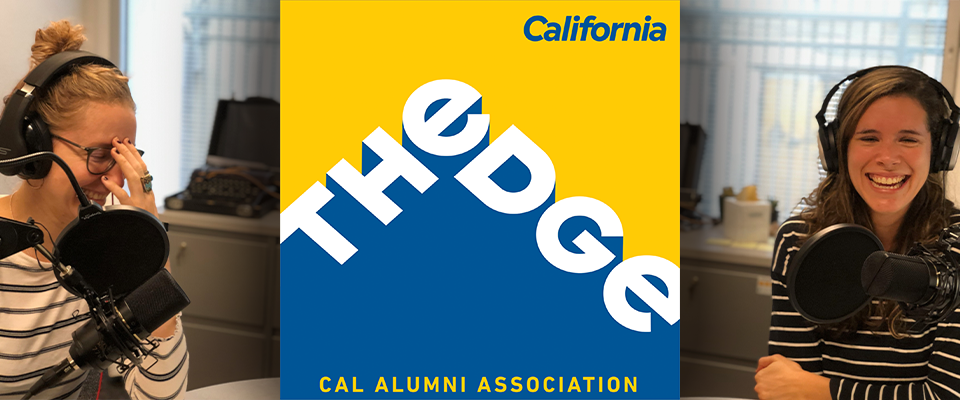
Introducing California Magazine’s New Podcast, “The Edge”
California magazine is excited to announce its latest venture: The Edge, a podcast tackling cutting-edge, often controversial topics within the UC Berkeley community. The first two episodes—which explore the personal information we unknowingly give away on our phones and the evolution of politically correct language—will be out July 1. Later episodes will cover the […]
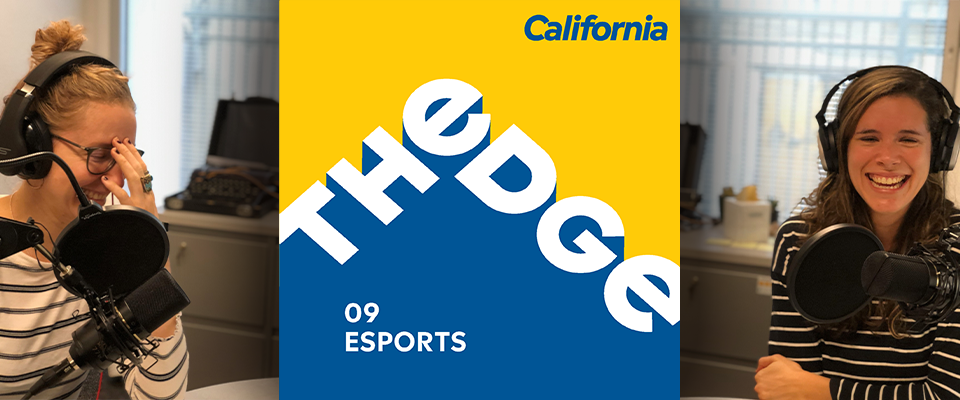
The Edge Episode 9: You Say Couch Potato, I Say Athlete
How did video gaming, or esports, make it from your parents’ basement to the big leagues? Laura and Leah discuss with student esport “athletes,” an administrator, and a team owner.
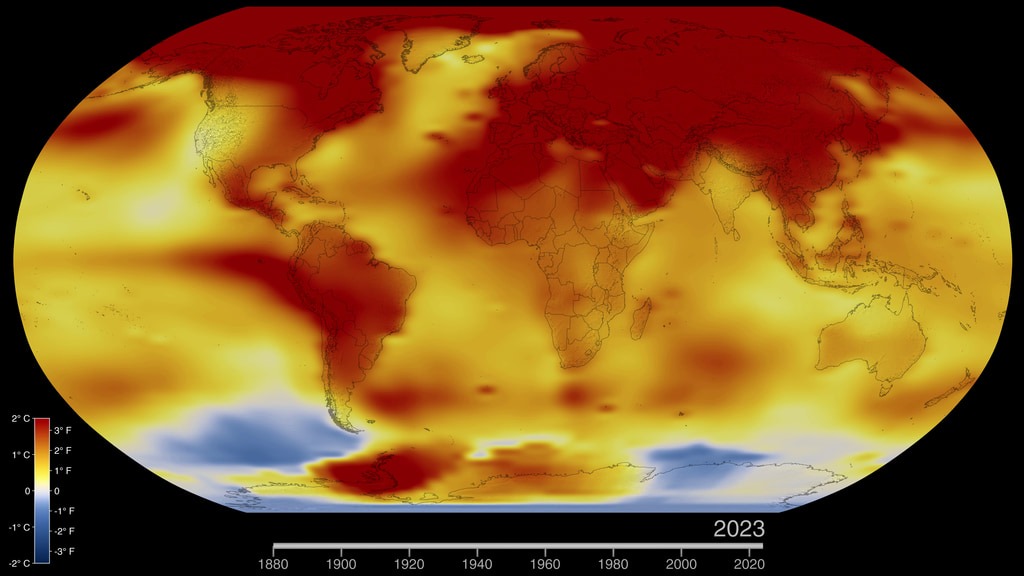
The Edge Episode 25: The Heat with Jeff Goodell
The world just lived through the two hottest days ever recorded. We spoke to author Jeff Goodell about the most obvious but least discussed effect of global warming.


